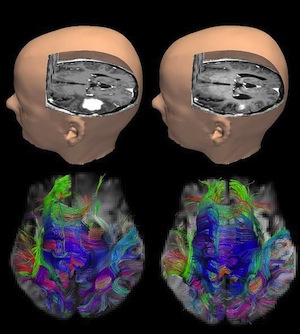Clinical Trials
Blood circulating endothelial cells and circulating progenitor cells as biomarkers of antiangiogenic therapy in cancer patients. Due to spectacular successes in clinical trials, the use of antiangiogenic agents in cancer patients is rapidly becoming part of clinical practice in the USA and elsewhere. But targeting angiogenic vessels requires new and adequate methods for the assessment of the biologic effect of various agents developed to control cancer progression. Traditionally, tumor angiogenesis has been evaluated by measuring microvessel density in biopsy specimens using immunohistochemistry. Predicting and/or assessing accurately the efficacy of antiangiogneic therapies by this method is hampered by the heterogeneity of tumors, and by the difficulty to obtain specimens at multiple time points during treatments. Moreover, microvessel density, as well as the level of VEGF, Ras, P53, and thrombospondin 2 expression have all failed to predict the efficacy of bevacizumab with chemotherapy in the pivotal trial in colorectal cancer patients. Validating biomarkers for antiangiogenic agents is critically important, since traditional methods of evaluation of tumor response (e.g., RECIST) may not be appropriate for these targeted agents. On the other hand, obtaining peripheral blood at multiple time-points during treatment is a minimally invasive, routine procedure.

